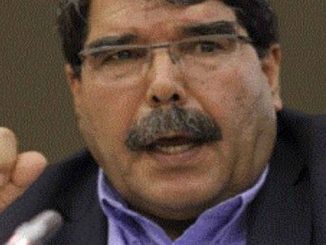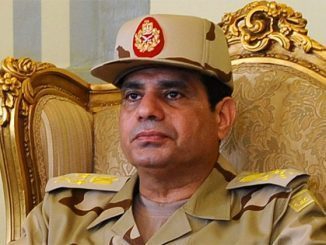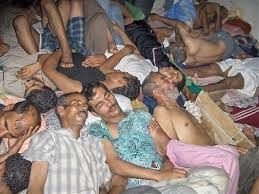
Commenting on the vvisit of Football Legend Lionel Messi to Egypt, the Egyptian people said, “We are ‘too poor’ to bear the costs of such visit,” which the government claimed it was a move to promote medical tourism in the North African country.
During the annual Youth Forum held this year, Abdel Fattah al-Sisi had stressed that Egypt is a very poor country. Al-Sisi was addressing the Egyptian people when he said, “Hasn’t anybody told you that we are extremely poor?” adding, “Then let me tell you that we are very poor, very poor!”
At that time, the Egyptians mocked at al-Sisi’s statement which came in line with his general discourse of promoting austerity since he came to power in 2014.
In response, the Egyptian people criticized the regime’s clear contradiction between calls for austerity and at the same time spending lavishly on the visit of the Argentinian football player (about 25 million Egyptian pounds for only a six-hour tour as part of a medical campaign for Hepatitis C medication.
The visit started with Messi visiting the pyramids and taking photos there to promote the “ Tour ‘n Cure” campaign.
In fact, the Egyptian Ministry of Tourism put a lot of hope on Messi’s visit to revive the tourism sector in Egypt.
In a previous statement, the Tourism Ministry said,“Such visits by international public figures are, undoubtedly, in favor of Egypt and serve its tourism sector significantly.”
Tourism revenues have fallen as result of security instability in Egypt after the military coup in 2013 against Egypt’s first democratically elected President Mohamed Morsi.
Egypt’s tourism is one of the major sources of foreign currency in the country, that suffers from an economic crisis due to the shortage of foreign currency.
The number of tourists fell 40% in the first quarter of 2016.
However, the Egyptian activists on the social media said that the if they gave sick people the money instead of spending millions of Egyptian pounds on such visits, they would have been cured.
Another activist said mocking al-Sisi,”We are extremely poor,but we pay millions to Messi.”
Other said,”This amount of money given to Messi and spent on the luxurious reception party would have been used to renew the contaminated water stations that are the main cause of Hepatitis C as well as renewing the wrecked Hepatitis C hospitals.”
The economic conditions has deteriorated in an unprecedented way under his al-Sisi’s rule.
The withdrawal of the two main sources of foreign currency ,tourism and foreign investments, led to a severe shortage in foreign currency and the Egyptian pound rate has fallen compared to the US dollar and the black market flourished on the currency expense and led to inflation.
As a result, the Egyptian government decided to take extreme measures to revive its wrecked economy.
Last November, the International Monetary Fund’s executive board approved Egypt’s request to secure $12 billion loan facility after Egypt met its requirements.
On August 30 Egypt started its first steps towards the loan when Egypt’s parliament approved a long-awaited law introducing a value-added tax (VAT) of 13 %, rising to 14% in the next fiscal year.
On November 3, the Central Bank of Egypt floated the Egyptian pound and gave up trying to peg the currency to the US dollar allowing it to devalue by almost half.
On November 4, Egypt took another unprecedented decision, which has always been abandoned by former leaders in fear of public unrest, to cut subsidies for fuel leading to jump in prices.
However, despite taking all these drastic steps, the IMF loan alone won’t help as the North African country still needs to revive its internal sources and investments to allow the flow of foreign currency within the country and thus, stabilizes its currency and contains its inflation rate.
It is noteworthy that the inflation rate has hiked recently after floating the Egyptian pounds.
According to a statement issued by the Central Agency for Public Mobilization and Statistics (CAPMAS), the annual Inflation rate hiked to 24.3% in December, compared to 20.2% in November.
The statement attributed the increase of the inflation rate to price hikes in the food and beverage sector, as they registered an increase of 29.3%, representing a 15.12% increase in the Consumer Price Index (CPI).



